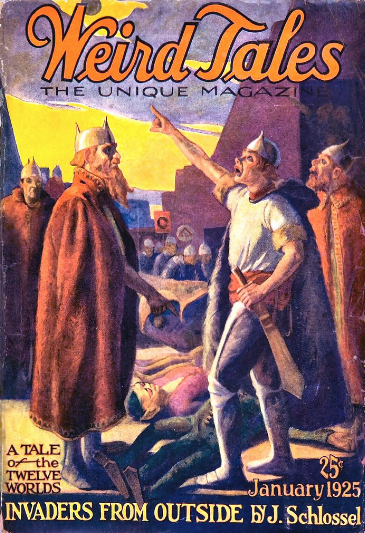Speaking of a woman named Mary Sue, it wasn't very long ago that I learned about the Mary Sue-type character used in science fiction and science fiction criticism. You probably already know about Mary Sue. If you don't, it's easy enough to read about her on the Internet.
Mary Sue originally came from Star Trek fan fiction and fanzines. She didn't stop there, though. Some people see Rey, from the last Star Wars trilogy, as a Mary Sue character. It's hard to argue with that idea.
It occurs to me that Mary Sue may be the female version of the Superior Man of science fiction, especially as he appeared in Astounding Science Fiction of the 1930s through the 1950s. (You could call her Mary Superior except that that sounds too much like the name of a Catholic nun.) The Superior Man of science fiction is a powerful and ultimately triumphant character, as opposed to the flawed, weak, or defeated character of weird fiction. There may be something to Jack Williamson's concept of the Egyptian-Hebraic versus the Greek hero or protagonist. Mary Sue may also be triumphant. If she doesn't die in the end, everything comes to her and everything belongs to her. If the comic book superhero is the fulfillment of adolescent male power fantasies, then maybe Mary Sue serves the same kind of purpose for adolescent females and their adult counterparts.
Not long ago, I read an article entitled "The 25 Best Space Opera Books of All Time" by Rachel Brittain. It's on a website called Book Riot, here, and dated October 4, 2022. Because we live in an age of lies, it's hard to say just what their number is, but at least half of the authors in Ms. Brittain's list are women. (Her list seems to serve political rather than literary or critical purposes. In that, it seems pretty well useless. Alternatively, the purpose of this list is to hawk books, in which case it may be useful after all, at least to all who stand to gain financially from it.) That makes me think that at least some of the protagonists in these books are the Mary Sue- or Superior Woman-type character. The same type is all over TV and movies. You'll know her when you see her. She's twenty-five, well-dressed, attractive, and in charge of everything. Her underlings, mostly men, do what she says without question, even though they have more experience and training than she does. She can also beat up every man in sight even though she weighs only 120 pounds and punches with all of the force of a whiffle ball in flight.
Space opera was invented by men and for decades men were its main practitioners, including J. Schlossel and Edmond Hamilton in the pages of Weird Tales. The term--a derisive one at first--was also invented by a man, Wilson Tucker, a critic and an outsider, in 1941. Never mind any of that. At least half of the best space opera books of all time have been written by women. There can be no dissent.
Text copyright 2022, 2023 Terence E. Hanley

No comments:
Post a Comment